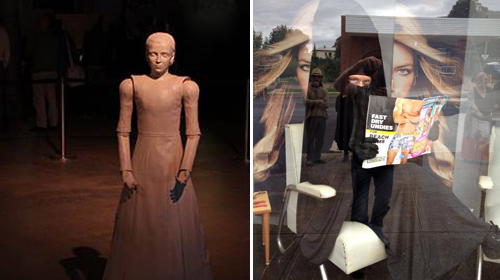Latest News Archive
Please select Category, Year, and then Month to display items
12 October 2020
|
Story Arina Engelbrecht
|
Photo Supplied
 Arina Engelbrecht from Organisational Development and Employee Well-being believes physical activity has a number of benefits for one’s health, including stress relief.
Arina Engelbrecht from Organisational Development and Employee Well-being believes physical activity has a number of benefits for one’s health, including stress relief.
Being physically active plays a big role in preventing the development of mental-health problems and in improving the quality of life of people experiencing mental-health problems.
Treatment for depression
Physical activity can be an alternative treatment for depression. It can be used as a stand-alone treatment or in combination with medication and/or psychological therapy. It promotes all kinds of changes in the brain, including neural growth, reduced inflammation, and new activity patterns are formed that promote feelings of calm and well-being. It releases endorphins – powerful chemicals in the brain that energise your spirit and make you feel good.
Physical activity can be very effective in relieving stress. Research in adults has found that physically active individuals tend to have lower stress levels compared to individuals who are less active. It also leads to improved sleep. When a person sleeps better and feels more rested, overall quality of life improves. They cope better with daily life stressors.
Reduce Alzheimer's risk
Regular physical activity can reduce your risk of developing Alzheimer's disease by up to 50%. It can also slow down further deterioration in those who have already started to develop cognitive problems. It stimulates the brain’s ability to maintain old connections as well as to make new ones.
A study asked people to rate their mood immediately after periods of physical activity (e.g. going for a walk/run, cycling, doing housework) and periods of inactivity (e.g. reading a book or watching television). Researchers found that participants felt more content, more awake, and calmer after being physically active compared to after periods of inactivity.
In conclusion, people who are physically active feel a sense of well-being, feel more energetic throughout the day, sleep better at night, have sharper memories, and feel more relaxed and positive about themselves and their lives.
“Being physically active not only changes your body, it changes your mind,
attitude, and your mood.” – Arina Engelbrecht
Art2 + x [science] = 2 continents fused
2014-04-02
|

Left: Diamandini by Dr Mari Velonaki. Right: 'Muslim Hairdrying' by Cigdem Aydemir.
|
Mzanzi resistance art is set to fuse with Australian interdisciplinary art in an experimental ‘boiling pot’ – right here on our Bloemfontein Campus.
Program for Innovation in Artform Development (PIAD)
Kovsies and the Vryfees forged a highly-innovative link between South African and Australian artists by establishing the Program for Innovation in Artform Development (PIAD). Together we are embarking on a three-year collaboration to see what happens when experimental and community arts are fused.
The project includes intercultural laboratories, art and science exchange programmes, public forums as well developing and presenting experimental art.
Art(ist)s meet science(tists)
For the first time, two Australian artists will visit our Faculty of Natural and Agricultural Sciences in an exchange programme. The one is Dr Mari Velonaki, director of the Creative Robotics Lab at the University of New South Wales. The other is Dr Nigel Helyer, an honorary research fellow at the SymbioticA biotechnology lab at the University of Western Australia.
Dr Velonaki will explore new links between humans and computers that are community orientated. She will work closely with Prof PJ Blignaut and the Department of Computer Science and Informatics. In turn, Dr Helyer will investigate genetic coding and intercultural musical compositions. He will collaborate with Prof J Albertyn at the Department of Microbial, Biochemical and Food Biotechnology.
Vryfees 2014 and 2015 will also see contemporary and highly-experimental works from renowned Australian artists Cigdem Aydemir and Jess Olivieri. In addition, the festival will present OPENLab – a new national laboratory for early and midcareer artists and creative practitioners interested in making art in the public realm.
The programme is the result of a close partnership between the Vryfees and Situate Art in Festivals, managed by Salamanca Arts Centre in Australia (www.situate.org.au).
It also enjoys the support of:
- Australia Council for the Arts;
- NSW Artists Grant Scheme administrated by the National Association of the Visual Arts LTD;
- Situate Art in Festivals;
- National Lottery Distribution Trust Fund and
- Modern Art Project SA.
For more information on Piad visit www.vryfees.co.za or https://www.facebook.com/pages/PikoPiad/1435158293383474.